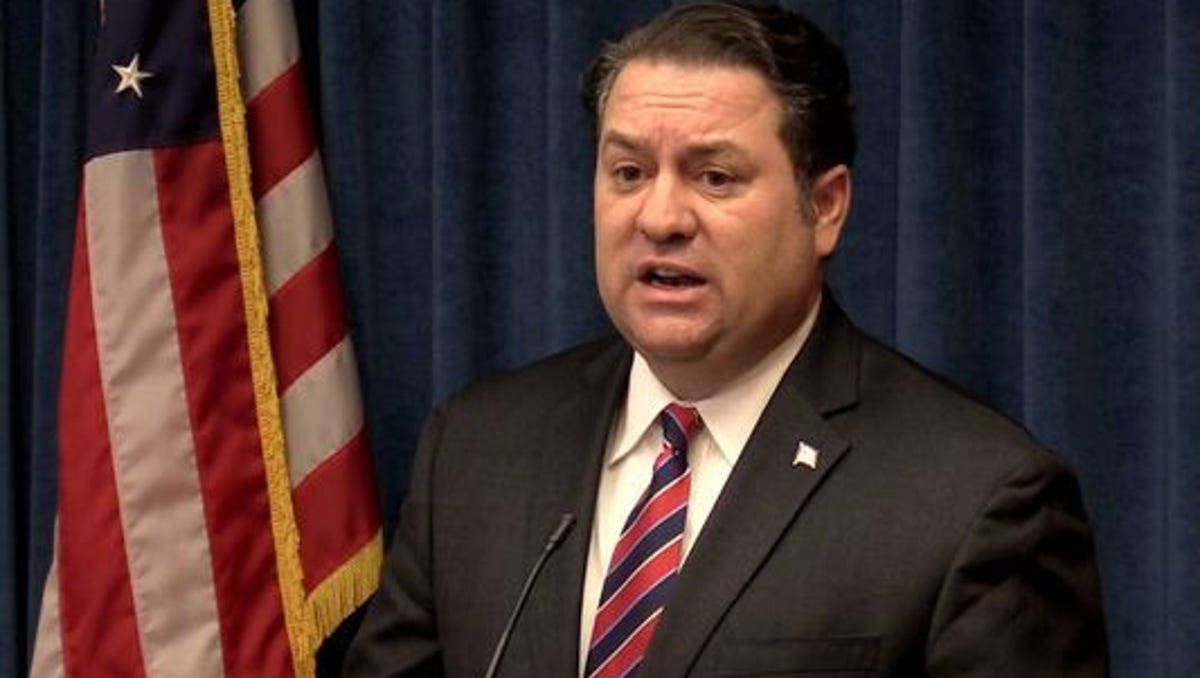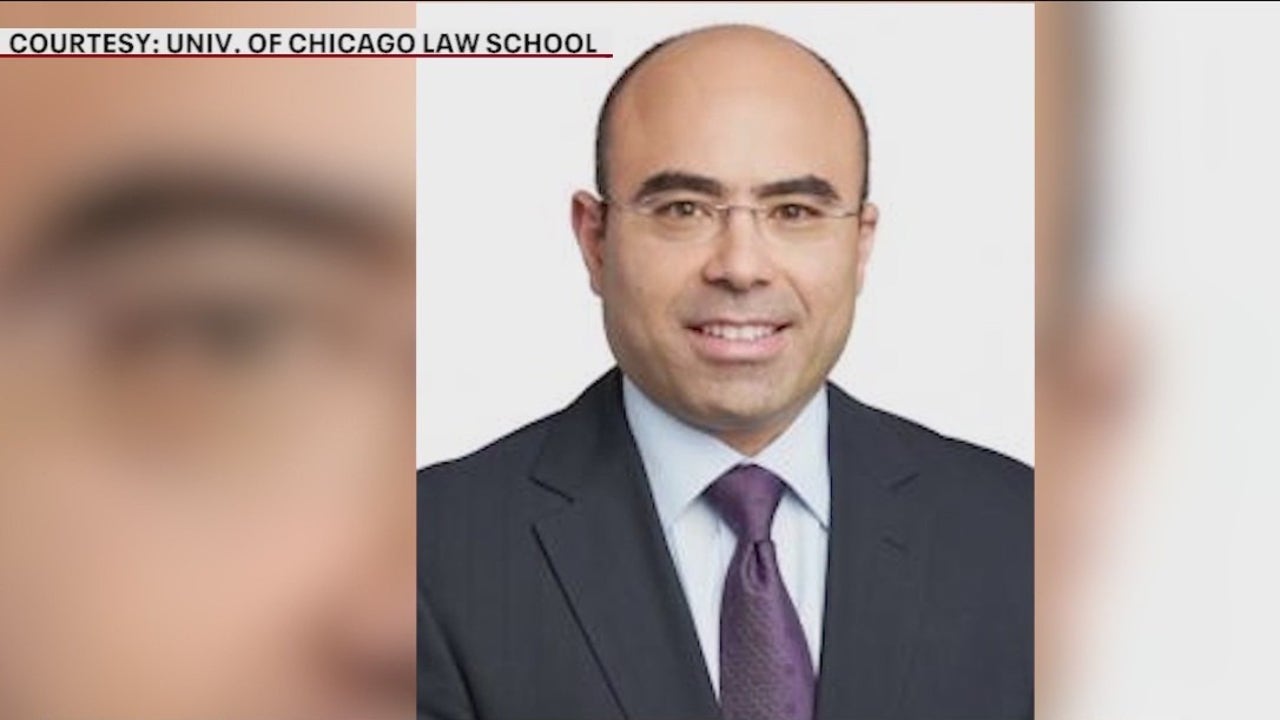World
Many in Niger are suffering under coup-related sanctions. Junta backers call it a worthy sacrifice

NIAMEY, Niger (AP) — Hamsa Diakite can’t remember the last time her family of eight had a good meal.
She once sustained them by selling fried bread until a coup in Niger three months ago resulted in sanctions against the West African nation, squeezing incomes in one of the world’s poorest countries and leaving millions like Hamsa struggling in the absence of aid.
“Not only is food very expensive, but school supplies have also doubled in price. I also have to clothe my children and, above all, deal with their illnesses,” the 65-year-old said.
After elite soldiers toppled Niger’s democratically elected President Mohamed Bazoum on July 26, the country faced economic sanctions from West Africa’s regional bloc, ECOWAS, as well as Western and European countries including the United States that had provided aid for health, security and infrastructure needs.
Neighbors shut their borders with Niger and more than 70% of its electricity, supplied by Nigeria, was cut off after financial transactions with West African countries were suspended. Niger’s assets in external banks were frozen and hundreds of millions of dollars in aid were withheld.
The sanctions are the most stringent yet imposed by the regional bloc in an effort to stem the tide of coups in Africa’s volatile Sahel region, but they have had little or no impact on the junta’s ambition.
Instead, they have hit hard Niger’s more than 25 million people.
“We are quickly running out of funding, medicines. People are running out of food,” Louise Aubin, the United Nations resident coordinator in Niger, told The Associated Press. The junta has since told her to leave Niger over allegations the global body is blocking the country’s participation in its activities. The U.N. hasn’t commented on the allegations.
Aubin said there had been “positive responses” from Niger’s neighbors to the idea of reopening borders for a humanitarian corridor, but didn’t give details.
The world’s third least developed nation, according to U.N. estimates, Niger in 2021 received $1.77 billion in assistance, more than half for humanitarian aid as well as social infrastructure and services. All of it is now in jeopardy.
Even the country’s 2023 budget, which was meant to be largely funded through the now-withheld external support from donors and loans, has been slashed by 40%.
Rather than deter the soldiers who deposed Bazoum and keep him under house arrest, the sanctions have emboldened the junta. It has set up a transitional government that could remain in power for up to three years.
That appears to have the support of many Nigeriens who felt the democratic government performed below their expectations, according to Seidik Abba, a Nigerien researcher and president of the International Center for Reflection for Studies on the Sahel think tank.
Even as they feel the pinch of sanctions, many people on the streets of Niamey, the capital, say they support the coup. They dismiss concerns from the West, which saw Niger as its last remaining strategic partner in its counterterrorism fight in the Sahel.
“The military sees that the people are supporting them, so they are using that support as a tool of legitimacy to hold on to power,” Abba said. For some junta supporters, the hardship brought by the sanctions is a worthy sacrifice, he added.
“The love of homeland has made us forget the hard times that the entire country is going through,” said Abdou Ali, one supporter in the capital. “No one cares about this rise in the price of goods.”
Aid workers and other observers working with the local population might disagree.
“We are trying to respond to a catastrophic situation for the country,” said Dr. Soumana Sounna Sofiane, secretary-general of the pharmacists’ union in Niger.
Many drugstores across Niger are running out of essential supplies at a time when the country faces public health emergencies including cholera. Desperate for a solution, pharmacies have started to give patients alternative medications to the ones they require.
Food is also running short. Rising inflation and high food prices are “significantly impacting communities’ capacity to make ends meet,” the U.N. World Food Program’s country office said. The agency said 3.3 million people in Niger were facing acute food insecurity even before the coup.
Niger is West Africa’s second largest country in landmass but it is landlocked, leaving it heavily reliant on trade with neighbors that now has paused. Food and drug supplies were among the top imported products last year.
Now, at the border with Benin, trucks loaded with goods and relief items are lined up for several kilometers (miles) waiting to enter Niger, though some are in transit to other countries.
More than 9,000 metric tons (9,920 tons) of WFP cargo, including specialized foods for the treatment and prevention of malnutrition, destined for Niger and neighboring Burkina Faso remain blocked between Benin and Togo, the U.N. food agency said.
The U.N.’s resident coordinator fears that the goal of reaching at least 80% of 4.4 million targeted people with humanitarian aid in Niger this year could be in jeopardy.
For many families, the sanctions hit them at the core.
Nearly one in five Nigeriens are thought to be livestock breeders, according to the World Bank. They were able to export live animals worth $10 million to Nigeria in 2021 but are now desperate to find an alternative market.
Across Niger, prices of basic items are surging. A 25-kilogram (55-pound) bag of rice, the main staple food, has jumped more than 50% in price since the sanctions were imposed.
“Our stocks are running out overnight, as nothing crosses borders to supply us. When stocks run out, we will simply close our stores,” said Ambouta Idrissa, manager of a large cereal sales depot in Niamey.
Other businesses shut down after incurring extra costs to run generators after Nigeria cut the power supply.
For Nigeriens like Diakite, who struggles to feed her family, the main concern is keeping her children from going to bed on an empty stomach. She said her hopes fade with every passing day.
“For how long can we hold on?” she asked.
___
Asadu reported from Abuja, Nigeria.

World
Protesters in Tel Aviv say government responsible for captives’ fate

Angry demonstrators demand the Israeli government secure the release of captives held in Gaza.
There have been more large protests in Israel, demanding that Israeli Prime Minister Benjamin Netanyahu conclude a captives-for-prisoners exchange deal with Hamas.
There are about 58 captives still held in Gaza, 34 of whom the Israeli military says are dead.
Family members of the captives and those supporting them rallied, with tensions rising between them and police in Tel Aviv on Saturday.
Demonstrators condemned the government’s decision to return to war, and held aloft pictures of their family members in captivity. They said they were holding the Israeli government responsible for their lives.
Saturday’s protest comes as Hamas’s armed wing, the Qassam Brigades, released a video titled, Time is Running Out, purporting to show an Israeli captive in Gaza calling on the government to secure his release, the second such video shared by the group within days.
The Hostages and Missing Families Forum campaign group identified the man as Elkana Bohbot, who was taken captive from the site of a music festival in southern Israel during Hamas’s October 7, 2023, attack that led to Israel’s latest campaign against Gaza.
The footage lasts more than three minutes, showing Bohbot speaking in Hebrew and pleading for his freedom.
World
Venice says it will host Bezos wedding and denies reports of possible disruptions for the city
ROME (AP) — The city of Venice confirmed Saturday it will host the wedding of multi-billionaire Jeff Bezos and fiancée Lauren Sanchez, denying reports the famous Italian city would be invaded by hundreds of celebrities and possible disruptions for citizens and tourists.
The city in a short statement didn’t give a date for the wedding. Italian media have reported it will be between June 24-26, with a few days of celebrations.
“The many speculations and fake news circulating about Jeff Bezos’ wedding are completely unfounded,” the statement said.
Bezos is the owner of The Washington Post and founder and largest individual shareholder of Amazon. Among others, George and Amal Clooney celebrated their wedding in Venice in 2014.
The city said only 200 guests would be invited, a number easily accommodated without any disruption to the city, its residents and visitors. It noted that it has broad experience handling international events “much larger than this.”
“Venice is used to being the stage for events and shows every week, without significant impacts,” the city said, citing G20 and G7 summits, the Architecture and Cinema Biennales, as well as private events and VIP weddings.
Several reports in both Italian and international media suggested that Bezos’ wedding organizers had already booked rooms at Venice’s main luxury hotels and reserved for a few days in late June large numbers of gondolas and water taxis — which are mainly used by locals and tourists for daily transportation.
The city denied those reports, saying it “is their utmost priority to make sure the city functions as normal, for all, with no abnormal disruption to anyone.”
“We are mutually working and supporting the organizers, to ensure that the event will be absolutely respectful of the fragility and uniqueness of the city,” Mayor Luigi Brugnaro said.
World
Faye Hall, American detained by Taliban, has been released
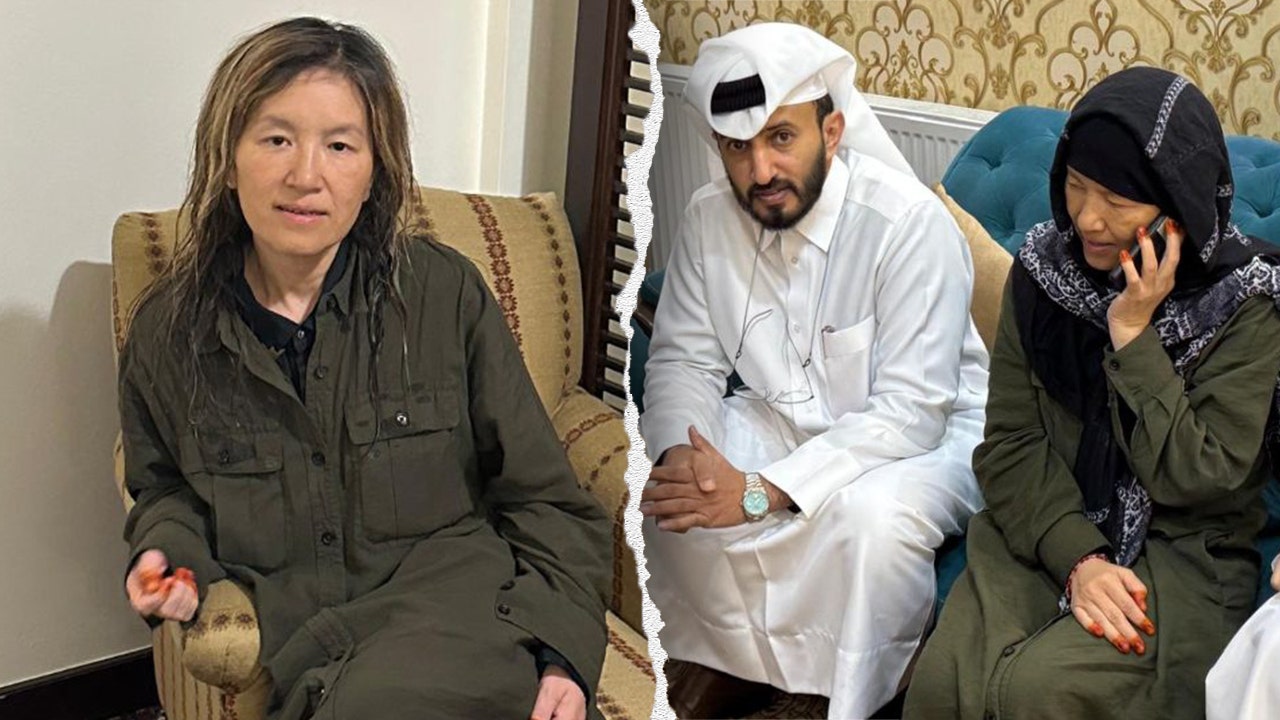
An American woman who had been detained by the Taliban since February has been freed, a source with knowledge of the release told Fox News on Saturday.
American citizen Faye Hall was released on Thursday and received at the Qatari embassy in Kabul. She has been confirmed to be in good health after undergoing a series of medical checks, the source said. Arrangements are currently underway for her return to the United States.
The Taliban agreed to release Hall after President Donald Trump removed multimillion-dollar bounties on senior members of the militant group, according to a report by the Telegraph.
Faye Hall, an American woman who had been detained by the Taliban since February, has been freed a source with knowledge of the release told Fox News Saturday. (Diplomatic source in Afghanistan)
TALIBAN FREES AMERICAN HOSTAGE GEORGE GLEZMANN FOLLOWING NEGOTIATIONS WITH US, QATAR
Trump agreed to remove millions of dollars of bounties on three senior members of the Haqqani network, including Sirajuddin Haqqani, the Taliban government’s interior minister, the outlet reported, noting that Washington was offering a $10 million reward for information leading to his capture.
Fox News Digital wasn’t immediately able to confirm the nature of the agreement and has reached out to the White House and the State Department for comment.
Her release was initiated following a court order and with logistical support from Qatar serving in its role as the United States’ protecting power in Afghanistan, the Fox News source said.
Hall, along with the British couple, Peter Reynolds, 79, his wife Barbie, 75, and their interpreter were arrested on Feb. 1, the outlet reported.
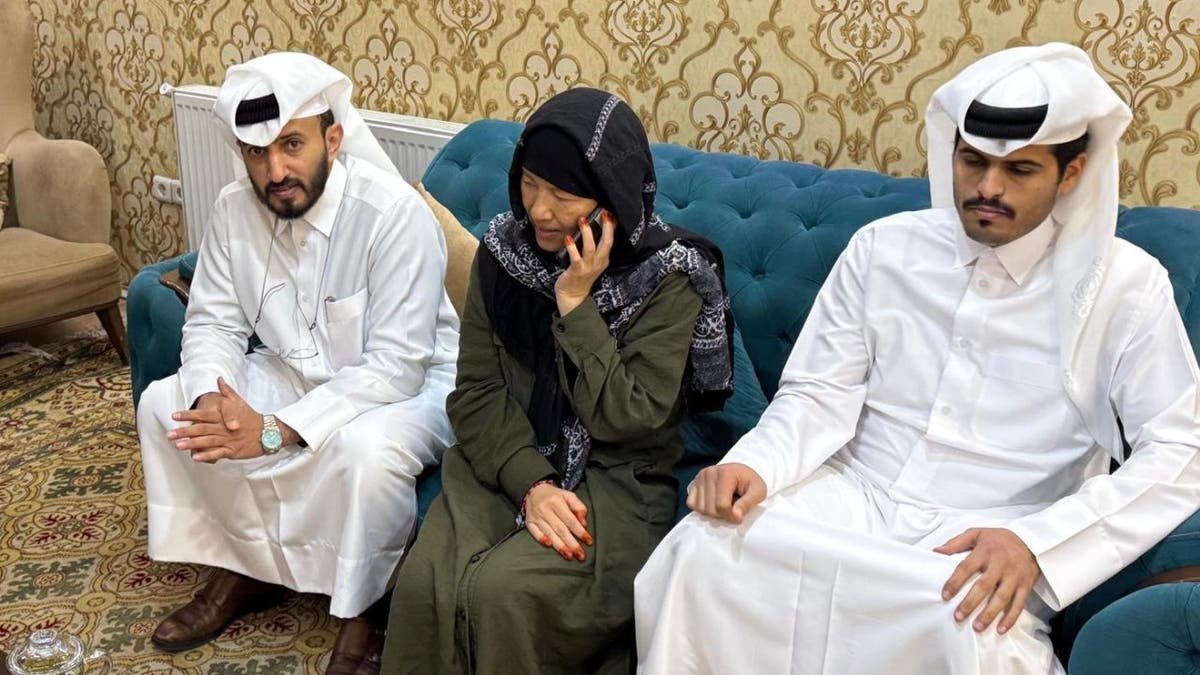
Faye Hall pictured with Qatari officials following her release. (Diplomatic source in Afghanistan)
FAMILY OF THIRD AMERICAN HELD BY TALIBAN CALLS FOR HIS IMMEDIATE RELEASE: ‘WE ARE CONCERNED’
The Associated Press previously reported that the British couple ran education programs in Afghanistan via Rebuild, an organization that provides education and training programs for businesses, government agencies, educational organizations and nongovernmental groups.
The Sunday Times said one project was for mothers and children. The Taliban severely restricts women’s education and activities in the country.
It is unclear what relationship Hall had with the couple or their group.
The couple’s detention was not based on any violations of local laws or religious customs, but was a political move by a faction to increase international pressure on the government and Haibatullah Akhundzada, its supreme leader, the Telegraph reported.
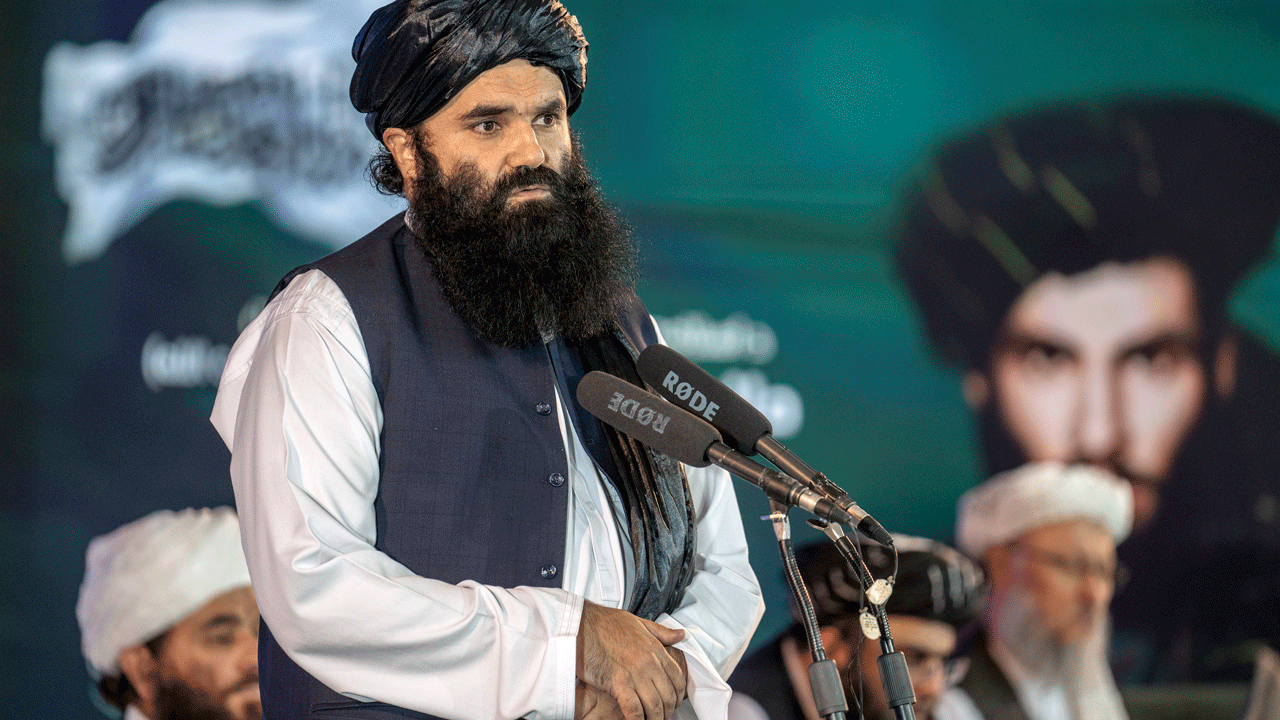
Trump agreed to remove millions of dollars of bounties on three senior members of the Haqqani network, including Sirajuddin Haqqani, the Taliban government’s interior minister, the Telegraph reported.
The couple’s children wrote a letter to the Taliban pleading for their release, saying that the couple respected and obeyed the laws.
“They have chosen Afghanistan as their home, rather than with family in England, and they wish to spend the rest of their lives in Afghanistan,” the letter reads in part, according to the Associated Press.
Hall’s release comes after the Taliban released American hostage George Glezmann, 65, last week after holding him for more than two years. That deal was also struck after negotiations between the Trump administration and Qatari officials. Glezmann was abducted while visiting Kabul as a tourist on Dec. 5, 2022.
Two other Americans, Ryan Corbett and William McKenty, were released earlier this year in exchange for a Taliban member in U.S. custody in a final-hour deal struck by the Biden administration.
Fox News’ Caitlin McFall and the Associated Press contributed to this report.
-

 News1 week ago
News1 week agoNASA Astronauts Don’t Receive Overtime Pay for Space Mission But Get $5 a Day
-

 News1 week ago
News1 week agoMusk Offers $100 to Wisconsin Voters, Bringing Back a Controversial Tactic
-

 News1 week ago
News1 week agoHow a Major Democratic Law Firm Ended Up Bowing to Trump
-

 Technology1 week ago
Technology1 week agoThreads finally lets you set the following feed as default
-

 News1 week ago
News1 week agoWere the Kennedy Files a Bust? Not So Fast, Historians Say.
-

 World1 week ago
World1 week agoDonald Trump signs executive order to ‘eliminate’ Department of Education
-
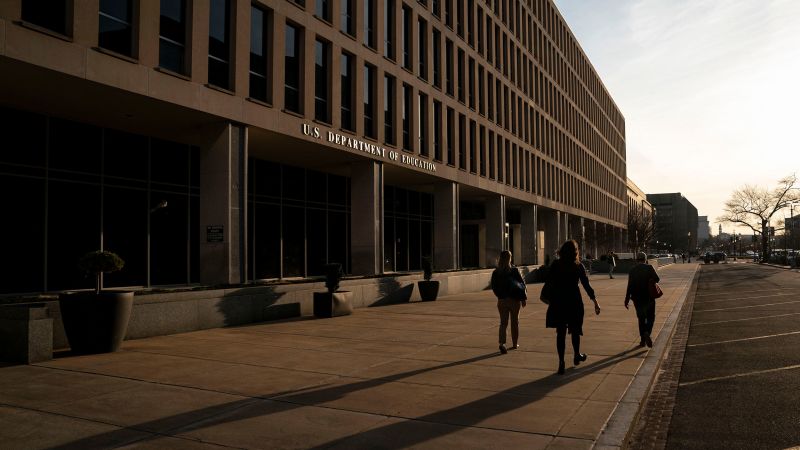
 News1 week ago
News1 week agoDismantling the Department of Education will strip resources from disabled children, parents and advocates say | CNN
-

 Education1 week ago
Education1 week agoICE Tells a Cornell Student Activist to Turn Himself In
:focal(0x0:3000x2000)/static.texastribune.org/media/files/37c17f9750e61048fe7c0ac508d7c084/Texas%20Dems%20Chief%20LS%20TT%2001.jpg)
